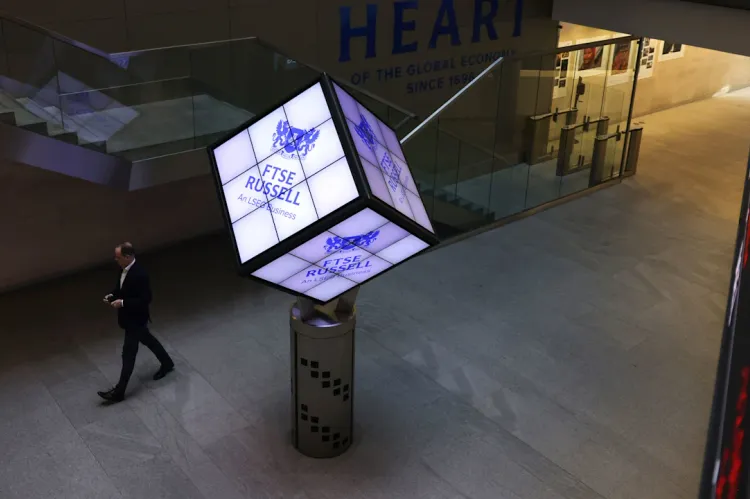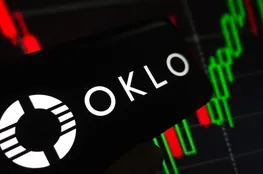The flailing Trump Media is part of the Russell 3000 index. These states want to know why.
A group of U.S. officials are expressing serious concerns regarding the inclusion of Trump Media & Technology Group (TMTG) within the Russell 3000 index, a prominent benchmark in U.S. capital markets. This decision, made last year, has triggered a formal letter of inquiry from state fiscal leaders, including those from Vermont, New York, Massachusetts, Rhode Island, Connecticut, Maryland, and the New York City Comptroller. The core of their concern centers on TMTG’s consistently underperforming financial status and the potential negative impact on the Russell 3000’s credibility and integrity. The Russell 3000 tracks the performance of the 3,000-largest publicly traded companies in the United States, and while investors can’t directly buy the index, numerous ETFs and index funds incorporate its performance. The index, managing approximately $10.6 trillion in assets, relies on rigorous standards to maintain its influence and attract institutional investment. The inclusion of TMTG raises critical questions about financial stability, governance, and the benchmark’s overall reliability.
Specifically, the letter highlights TMTG’s substantial financial losses. The company reported a net loss of $400.9 million in its last fiscal year and an additional $20 million in the most recent quarter. Trading in DJT shares is down 38% year-to-date, with the stock currently priced around $17.50. This poor performance, coupled with the company’s limited revenues and inherent risks associated with its stock, fuels the officials’ apprehension. They argue that investors unknowingly purchasing Russell 3000 tracking indexes might be unknowingly holding shares in a fundamentally unstable company. The letter demands a clear explanation from FTSE Russell regarding TMTG’s inclusion and requests an assessment of the company’s risk profile, alongside details of any safeguards designed to ensure future index selections adhere to sound market fundamentals. The officials emphasize that TMTG’s presence undermines the index’s reputation and raises concerns about transparency and accountability within the financial markets.
Furthermore, the letter notes that "two of the last three Trump financial ventures have resulted in significant investor losses," intensifying the scrutiny surrounding TMTG. The concerns aren’t simply about a single company’s performance; they represent a broader question about the criteria used to determine inclusion in such a high-profile index. The officials believe that maintaining the integrity of the Russell 3000 necessitates a rigorous evaluation process, prioritizing financial stability and sound market fundamentals over political considerations. The request for clarification and assessment underscores the significant implications of this inclusion and the potential damage to investor confidence.
London’s FTSE Russell and TMTG have not yet responded to the inquiry at the time of publication. The involvement of Vermont State Treasurer Mike Piecziak, whose state governor has urged a less confrontational approach with the White House, adds another layer to the situation. Notably, Governor Phil Scott rejected two requests this summer to send the Vermont National Guard to Washington, D.C., as part of Trump’s federal takeover of the nation’s capital, indicating a desire to avoid direct confrontation. The letter’s focus on transparency and accountability reflects a broader effort to protect investor interests and maintain the integrity of U.S. capital markets. The situation highlights the complexities of index construction and the potential for political considerations to influence financial benchmarks. The ongoing dispute underscores the need for robust governance standards and rigorous due diligence within the Russell 3000 index.
An evolving list, the Russell 3000 is reconstituted annually on the last Friday of June, reflecting changes in the U.S. equity market. Companies are evaluated based on their investment spectrum, from value to growth stocks, with market capitalization being a key determinant. FTSE typically looks at the market capitalization of the stock as a bellwether for inclusion. TMTG currently has a market cap of $4.87 billion, ranking it 3099th among publicly traded companies, as of 10 a.m. ET Tuesday. In June of this year, shares were about $3.50 higher than they are now, which likely put TMTG within the top 3,000, which could explain its inclusion. In January, on the final day of trading before the presidential inauguration, TMTG boasted a market cap of $8.68 billion as investors flocked to the company before Trump’s second term began.
The extended deadline for Fast Company’s Most Innovative Companies Awards is this Friday, October 10, at 11:59 p.m. PT. Apply today.
























